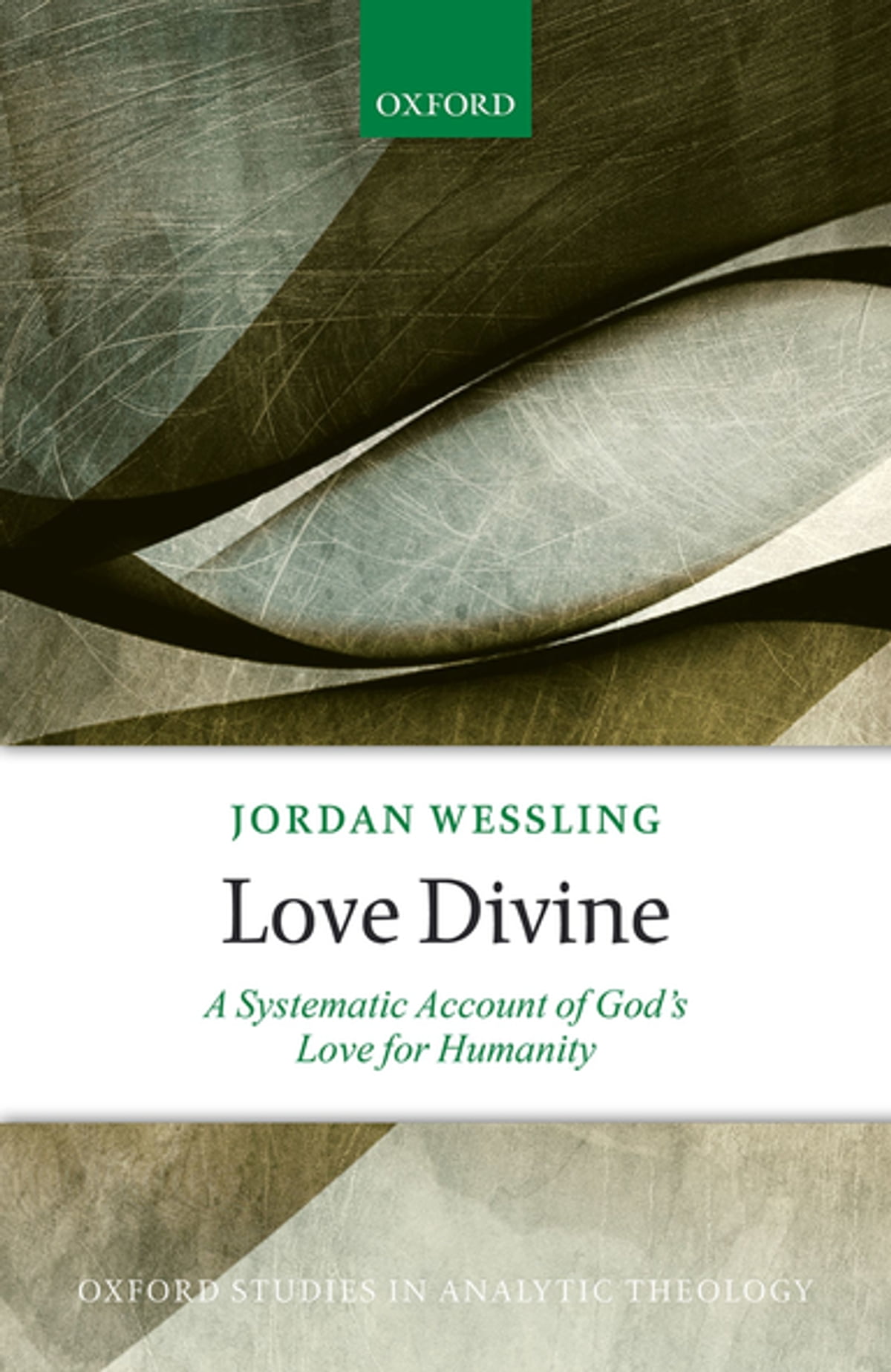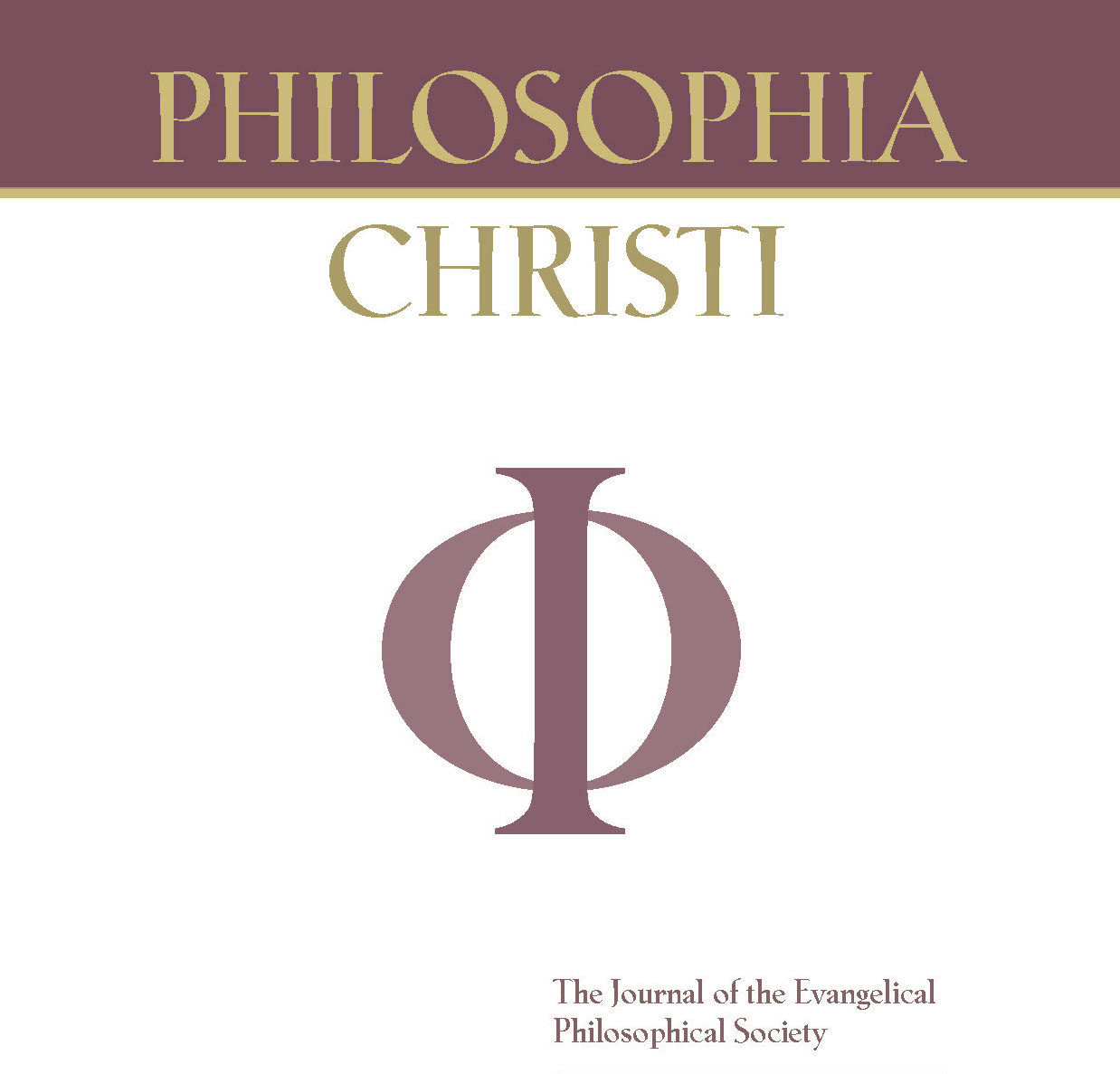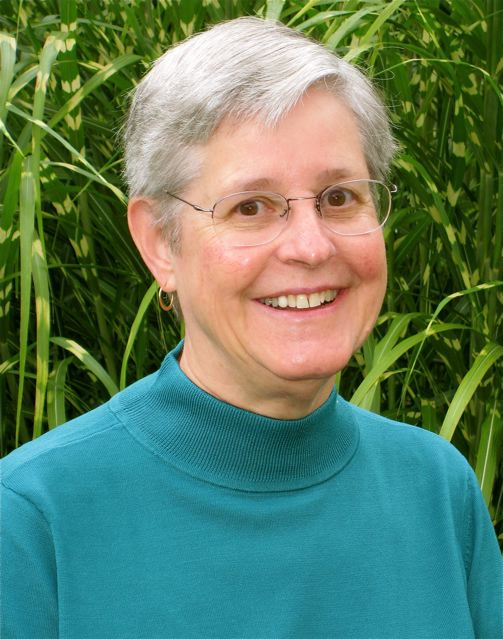In 2016, Angus Menuge gave a presentation for the European Leadership Forum’s conference on the topic, “Artificial Intelligence and the Metaphysics of Mind.”
Search Results for: "Angus Menuge"
Rejoinder to Angus Menuge on Ramified Personalized Natural Theology
This article is a rejoinder to Angus Menuge’s latest proposal of “a third way between standard natural theology and Gethsemane epistemology” for the Christ-Shaped Philosophy project.
I contend that we do not have a stable third way, because any alternative to Gethsemane epistemology, like the arguments of traditional natural theology, neglects the distinctiveness of the evidence for the self-authenticating Christian God and does not offer a resilient defense of belief in this God.
Advocates of the traditional arguments of natural theology fail to represent the ontological and evidential uniqueness of this God.
The full-text of this article is available for FREE by clicking here.
Welcome Angus Menuge!
We are grateful to host Dr. Angus J. L. Menuge as our new contributor to the EPS blog. Look for his first post in the next few days! (He recently made news in a New Scientist article that attempted to report on the resurgence of “Cartesian dualism” among neuroscientists and philosophers of mind).
Angus J. L. Menuge is Professor of Philosophy at Concordia University Wisconsin. Born in England, he became an American citizen in 2005. Menuge has written articles on the vocation of scientist, Intelligent Design, philosophy of mind and apologetics. He is the author of Agents Under Fire: Materialism and the Rationality of Science (Rowman and Littlefield, 2004) and editor of Reading God’s World: The Vocation of Scientist (Concordia Publishing House, 2004). He shares a website with Gene Edward Veith devoted to the Reformation doctrines of Vocation and the Two Kingdoms, www.cranach.org.
Angus, a member of the EPS, is also a frequent contributor to Philosophia Christi.
His most recent article appeared in our 10:1 issue, “Intelligent Design, Darwinism, and Psychological Unity.”
Menuge’s other Philosophia Christi articles include his “Beyond Skinnerian Creatures: A Defense of the Lewis and Plantinga Critiques of Evolutionary Naturalism” in our 5:1 issue and his “Whereof One Can Speak, Thereof One Must Not Be Silent: A Review Essay on Tractatus Logico-Theologicus” in the 6:1 issue.
Subscribe to Philosophia Christi, get the Summer 2022 Issue!

Preview of Philosophia Christi’s Winter 2021 Issue

The Winter 2021 issue of Philosophia Christi will feature a variety of articles, philosophical notes, and book reviews at the intersections of philosophical theology, philosophy of religion, ethics, and philosophy of time, including contributions from
- Kirk Lougheed on ‘grounds for worship’;
- Jonathan Daniel Ashbach on ‘phenomenological arguments’ for aesthetics;
- Angus Menuge on ‘Techno-Anthropology’ illusions;
- Erik Wielenberg on Craig’s Kalam argument;
- Zachary Adam Akin and his retrieval of Ralph Cudworth’s ‘Divine Conceptualism’ argument;
. . . among many other important contributions not to be missed!
YouTube Channel Launches for The Blackwell Companion to Substance Dualism

To learn more about this significant volume, browse the Table of Contents, read the Introduction, enjoy the Summer 2018 issue of Philosophia Christi [which includes many of the same Companion contributors], and enjoy a number of engaging video interviews with contributors to The Blackwell Companion to Substance Dualism [recorded in late 2017 at the EPS conference in Providence, Rhode Island].
Interviewees include Kevin Corcoran, GaryHabermas, Jonathan Loose, Angus Menuge, J. P. Moreland, Nancey Murphy, Eric Olson, Brandon Rickabaugh, and Richard Swinburne.
In addition, despite ill health, Lynne Rudder Baker kindly invited Jonathan Loose to her home prior to the conference and gave, according to Loose, what turned out probably to be her last interview on her work.
Subscribe directly to the “Mind Matters” channel on YouTube and follow Twitter announcements from @jonathanjloose about new video interviews to be released!
The Blackwell Companion to Substance Dualism
In 2018, Wiley-Blackwell will publish The Blackwell Companion to Substance Dualism, edited by Jonathan Loose, Angus Menuge, and J. P. Moreland. Jonathan J. Loose is Senior Lecturer in Philosophy and Psychology at Heythrop College, University of London. Angus J. L. Menuge is Professor and Chair of Philosophy at Concordia University Wisconsin and President of the Evangelical Philosophical Society. J. P. Moreland is Distinguished Professor of Philosophy at Biola University in La Mirada, California, where he has taught for 28 years.
This volume includes several contributions from EPS members or Philosophia Christi contributors, including the Editors, along with chapters from Charles Taliaferro, William Hasker, Richard Swinburne, Stewart Goetz, Gary Habermas, Joshua Rasmussen, Ross Inman, Brandon Rickabaugh, and John Cooper.
From the publisher’s description of The Blackwell Companion to Substance Dualism:
A groundbreaking collection of contemporary essays from leading international scholars that provides a balanced and expert account of the resurgent debate about substance dualism and its physicalist alternatives.
Substance dualism has for some time been dismissed as an archaic and defeated position in philosophy of mind, but in recent years, the topic has experienced a resurgence of scholarly interest and has been restored to contemporary prominence by a growing minority of philosophers prepared to interrogate the core principles upon which past objections and misunderstandings rest. As the first book of its kind to bring together a collection of contemporary writing from top proponents and critics in a pro-contra format, The Blackwell Companion to Substance Dualism captures this ongoing dialogue and sets the stage for rigorous and lively discourse around dualist and physicalist accounts of human persons in philosophy.
Chapters explore emergent, Thomistic, Cartesian, and other forms of substance dualism—broadly conceived—in dialogue with leading varieties of physicalism, including animalism, non-reductive physicalism, and constitution theory. Loose, Menuge, and Moreland pair essays from dualist advocates with astute criticism from physicalist opponents and vice versa, highlighting points of contrast for readers in thematic sections while showcasing today’s leading minds engaged in direct debate. Taken together, essays provide nuanced paths of introduction for students, and capture the imagination of professional philosophers looking to expand their understanding of the subject.
Skillfully curated and in touch with contemporary science as well as analytic theology, The Blackwell Companion to Substance Dualism strikes a measured balanced between advocacy and criticism, and is a first-rate resource for researchers, scholars, and students of philosophy, theology, and neuroscience.
Enjoy a number of engaging video interviews with contributors to The Blackwell Companion to Substance Dualism, which were given in late 2017 at the EPS conference in Providence, Rhode Island. Interviewees include Kevin Corcoran, Gary Habermas, Jonathan Loose, Angus Menuge, J. P. Moreland, Nancey Murphy, Eric Olson, Brandon Rickabaugh, and Richard Swinburne [for more print contributions from many of the interviewees on physicalism and substance dualism, see the symposium discussion in the Summer 2018 issue of Philosophia Christi].
In addition, despite ill health, Lynne Rudder Baker kindly invited Jonathan Loose to her home prior to the conference and gave, according to Loose, what turned out probably to be her last interview on her work.
Subscribe directly to the “Mind Matters” and follow Twitter announcements from @jonathanjloose about new video interviews to be released!
In Memoriam, Lynne Rudder Baker (1944-2017)
In light of news of Lynne Rudder Baker’s passing, Evangelical Philosophical Society President, Angus Menuge, offered the following reflection:
Lynne Rudder Baker (1944-2017) was a remarkably original, courageous, and clear-headed Christian philosopher who stands as a role-model for anyone aspiring to excellence as a Christian scholar and teacher. Her first book, Saving Belief, is still the best sustained critique of eliminative materialism and was an inspiration to my own work in philosophy of mind. Lynne’s most innovative contribution was the constitution view of persons. This view accepts the irreducible reality of persons as intentional beings with a first-person perspective and offers an alternative to substance dualism in its account of the Christian teachings of the incarnation and resurrection. Lynne’s last book, Naturalism and the First-Person Perspective, is a standing challenge to naturalism that deserves to be widely discussed for years to come. Students, colleagues, friends, and her husband Tom, will dearly miss her.
Since her passing, various philosophers and former students have also expressed their memories of Lynne and tributes to the value of her work. A common theme articulated by many: Lynne Rudder Baker was overwhelmingly ‘smart,’ ‘elegant,’ ‘generous,’ and ‘kind.’
At the time of her death, Professor Lynne Rudder Baker was Distinguished Professor Emeritus at the University of Massachusetts, Amherst. In 2005, she achieved the rank of Distinguished Professor of Philosophy. Lynne started teaching at UMass. in 1989.
The contributions and significance of her work extended to various areas of philosophy, including metaphysics, philosophy of mind, philosophy of religion, and epistemology.
Just a few weeks ago, the American Philosophical Association announced that Baker would give the 2018-2019 Patrick Romanell Lecture, focused on the topic of “Philosophical Naturalism.” The chair of the selection committee said,
Lynne Rudder Baker has been a leading contributor to the literature on philosophy of mind, metaphysics, and philosophical theology for more than forty years. One of the many important themes that she has explored in her work concerns just what naturalism is committed to, and what it is that naturalists can and cannot account for.
Of her books, the UMass. Memoriam reads:
Lynne’s first book, Saving Belief: A Critique of Physicalism, presented a defense of the importance of intentional notions against eliminitivists, such as the Churchlands, whose stark metaphysics would rob the world of intentionality, but, at the same time, argued that the legitimacy of intentional notions does not depend on their finding a place in some successful cognitive science, as many then, and now, would have it. The pragmatic metaphilosophy which underlay this view was brought into sharp focus in Lynne’s second book, Explaining Attitudes: A Practical Approach to the Mind. In Persons and Bodies: A Constitution View, Lynne made explicit her distinctive metaphysical views about the intimate relationship between a person and that person’s body, avoiding both the perils of various forms of reductionism, and the excesses of an extravagant dualism. The Metaphysics of Everyday Life: An Essay in Practical Realism extended Lynne’s pragmatism to questions about the metaphysics of ordinary objects. And Lynne’s latest book, Naturalism and the First-Person Perspective, presents a striking challenge to naturalism, arguing that the very fact that we are capable of thinking of ourselves from a first-person point of view cannot be captured within a naturalistic worldview. This is an extraordinary body of work, presenting an utterly distinctive set of views on topics of the first importance.
It is believed [though not yet confirmed] that Baker was working on a forthcoming book with Mario De Caro and Fiona Ellis. In April 2016, all three participated in an international conference [at Gregorian University in Rome] on “Nature and Naturalism” (including presentations by Andrew Pinsent and Steven D. Smith). Lynne’s presentation was published in July 2017 in Philosophy [Royal Institute of Philosophy], titled, “Naturalism and the Idea of Nature.”
In 2012, she gave a keynote address explaining her defense of Anselm’s “ontological argument for God’s existence.”
In the pages of Philosophia Christi, the peer-reviewed journal of the Evangelical Philosophical Society, her work related to naturalism, mind-body dualism, and philosophy of religion was cited, consulted, appraised and critiqued. For example, Kevin Timpe published a 2004 response to Baker’s 2013 Faith and Philosophy article [“Why Christians Should Not Be Libertarians: An Augustinian Challenge”], titled, “Why Christians Might be Libertarians: A Response to Lynne Rudder Baker” (Philosophia Christi, vol. 6, no. 2).
Earlier this year, Biola University’s Center for Christian Thought hosted an exchange between Lynne Rudder Baker and Dean Zimmerman:
- Baker: “A Materialist Model of Christian Resurrection.”
- Zimmerman: “How Could Anyone Be a Dualist?”
- Zimmerman: “Jumping from Body to Body When We Die?”
- Baker: “Is Disembodied Existence Central to Christianity?”
- Baker: “Deep Metaphysical Differences.”
- Zimmerman: “What is Our Relationship to our Bodies?”
In 2001 Lynne participated in the Gifford Lectures [she contrasted “first-person knowledge and third-person understanding to scientific knowing”]. Her Gifford bio page indicated that was a member of Grace Episcopal Church in Amherst. Writing for PhilosophyOfReligion.org, in January 2017, Baker wrote the following in light of her lead question, “What does philosophy of religion offer to the modern university?”
Granted, I didn’t teach philosophy of religion in relation to history or culture. Analytic philosophers, myself included, teach philosophy of religion as a series of logical puzzle cases: Can God make a stone so heavy that he couldn’t lift it? Or perhaps as religious epistemology: is there any good reason to believe in a deity? Or perhaps as genealogy: Why did religion (considered generically) arise? I now see these approaches, which are followed by many analytic philosophers, as misleadingly reductive.Although I would not teach philosophy of religion by draining the life and particularity out of religions, I do recognize that there is a distinctively philosophical place for religions in the university curriculum–a place that would benefit students raised in a consumerist culture that leaves people with the emptiness of routine work and the endless quest for diversion. (Pascal was on the mark when he excoriated lives focused on diversion.)Philosophy of religion could play a signal role in helping university students understand reality as a domain-independent whole: What difference would it make if there is any reality beyond the spacetime universe, beyond the particular domains of the sciences—any reality that comprehends the cosmos as a whole? The aim of philosophy of religion could be to bring reflection to unreflective ideas of reality, and to teach students to be still and to reflect on their own lives. We are all going to die–and that includes you and me; what bearing does that fact have on how we live?
. . .
If we do conceive of the cosmos as an ordered whole, it can be argued that we have resulting obligations to the environment and to future generations; global questions about human beings as such; and about animals as such. We should also consider anti-human implications of advances in technology. These matters are illuminated by arguments in the philosophy of religion.Another deep question arising from thinking about the world as a whole is this: What is natural–as opposed to artificial or cultural? What is it to act according to one’s nature? Do human beings have a natural or divine right to be delivered from murderous harm? What is the purpose of government? Is there a common good? What is the relation between fact and value? (Hume has held the stage on this question far too long.)Philosophy of religion may ask metaphysical questions that blossom out into social, political and ethical questions. What is justice? If others are starving, does justice require depriving oneself to the point of self-harm? Philosophy of religion may also argue about war and its justification, and poverty and its alleviation. Are hierarchies justifiable? Even though such questions may be answered with no appeal to religion, it seems arbitrary—given the influence of religions in the world—to rule out religions as contributing to answering them.. . . .The philosophy of religion stubbornly explores the Big Questions: Does life have purpose beyond individual choice? Are living people responsible for the evil of the past? Why can we not learn from the past? Is there any remedy?Traditionally, much of philosophy of religion has concerned itself with the existence of God, but in truth, the area is much broader and encompasses almost all domain-independent questions.Philosophy of religions ranges over all the domains of the particular sciences. It is one of the highest achievements of the human intellect to think about these matters. As ancients Greeks said, we throw away these questions to our peril.Broadening one’s perspective in light of these questions of what is ultimate is what university education is all about. So, I think that philosophy of religion that attends to such questions undoubtedly has a place in the university curriculum.
EPS 2017: “Debating Christian Physicalism”
Enjoy this Panel Discussion at the Annual ETS-EPS Conference in Providence, Rhode Island, November 15-17!
Date: Thursday, November 16
Time: 3:00 PM – 6:10 PM
Room: Omni – Waterplace I
“Debating Christian Physicalism”
Moderator: Angus Menuge (Concordia University Wisconsin)
Panelists:
- Jonathan J. Loose (Heythrop College)
- Richard Swinburne (University of Oxford)
- Nancey Murphy (Fuller Seminary)
- Brandon Rickabaugh (Baylor University)
- Eric Olson (University of Sheffeld)
- Kevin Corcoran (Calvin College)
- J.P. Moreland (Talbot School of Theology)
See the forthcoming Blackwell Companion to Substance Dualism and then Christian Physicalism? Philosophical Theological Criticisms.
 |
|
| Blackwell Companion to Substance Dualism editors, Angus Menuge, JP Moreland, and Jonathan Loose |
Support the EPS to expand its reach, support its members, and be a credible presence of Christ-shaped philosophical interests in the academy and into the wider culture! Right now, there couldn’t be a better time to multiply your support of the EPS in light of a $25,000 matching grant from an anonymous donor. Help us reach and exceed our $50,000 goal by December 31st.



